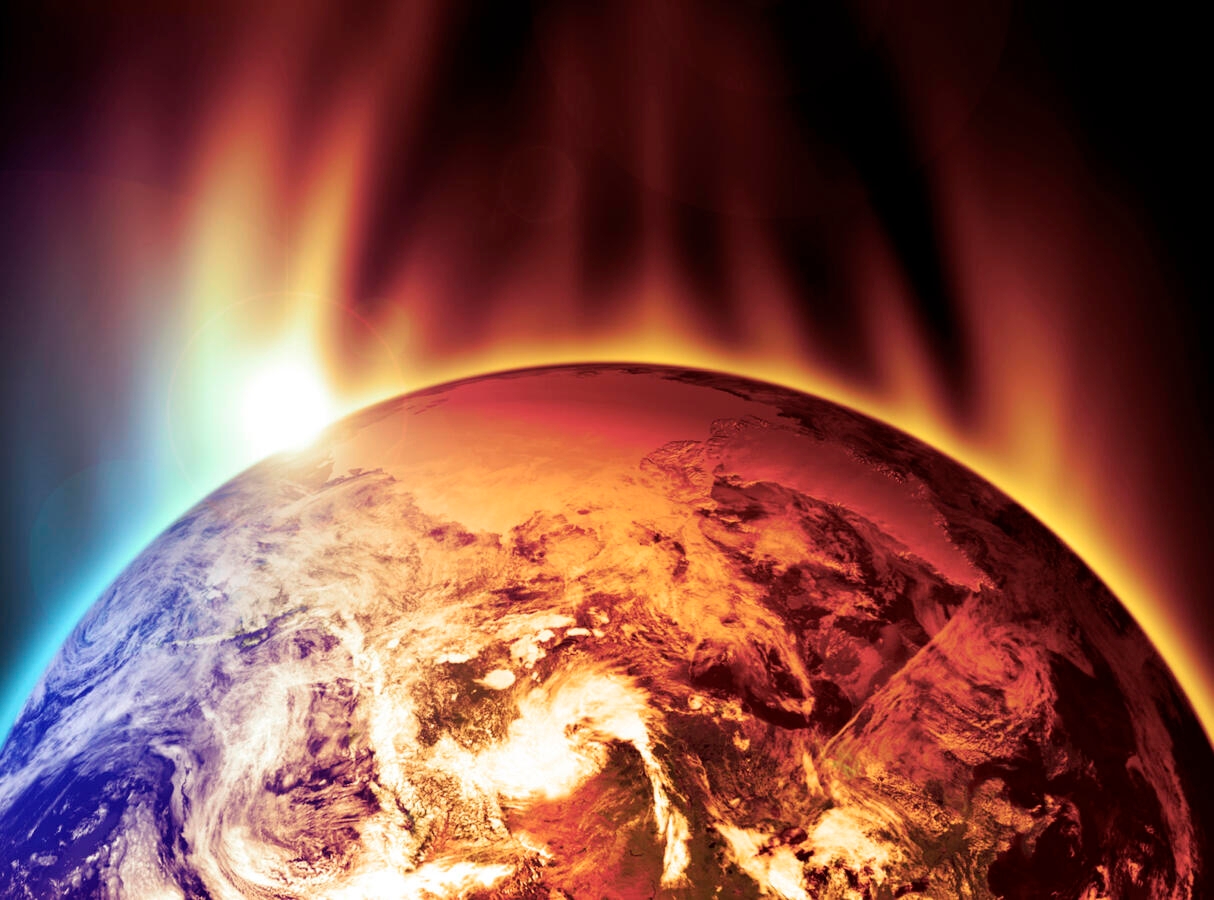Abraham saw a world that was burning. A vivid midrash on this week’s Torah portion recounts the story of how the Jewish patriarch first encountered God. Abraham saw the world as a bira doleket, a flaming tower, and demanded indignantly, “Is there no one in charge?!” At this, God shows his face and admits, “I am the one in charge.” Thus begins Abraham’s relationship with the divine.
Like Abraham before us, we too gaze out at a burning world. Our eyes have taken in so much devastation and horror. In the last few weeks we have all been witness to many burning buildings. We too cry out that no one is in charge. We too long for God to show up and take some ownership of the situation.
This midrash paints a picture of divine relationship that emerges from a place of shock and indignation. God shows up in the world because Abraham demands it. The world without God’s presence is untenable, it will burn itself out. Abraham won’t let that happen. He holds God accountable, reminding God that the ruler of the universe needs to act like it.
Abraham understands that the world needs God, and so he devotes the rest of his life to being an agent of God’s blessing. Rather than blame God for the fire, or step aside and let God put it out, Abraham works on God’s behalf. Rashi allows us to listen in as God tells Abraham: “Blessings are entrusted to you … from now on you shall bless whomever you wish.” Abraham becomes the bestower of divine blessing. He spreads these blessings throughout the world.

Help us keep Jewish knowledge accessible to millions of people around the world.
Your donation to My Jewish Learning fuels endless journeys of Jewish discovery. With your help, My Jewish Learning can continue to provide nonstop opportunities for learning, connection and growth.
In response to the pain and suffering of the past few weeks, we all long to be blessed. We long to be safe, to be at peace, to feel joy. And maybe even more so, we long for the ability to bless others. We desperately want to care for each other, to keep those around us safe. And we wish, like Abraham, that we could bestow blessings throughout the world. There is so much pain, so many fires in need of divine attention. With Abraham as our model, we must each strive to be bestowers of divine blessing.
There is another common, but opposite way to read this midrash about Abrahm’s encounter with the burning building. The Hebrew word doleket can be translated not only as “aflame,” but also as “aglow.” It is possible that this midrash is teaching us to find God not by looking directly at the parts of our world that burn, but by focusing our attention on the parts luminescent with beauty and wonder. In this reading, Abraham is the master of mindfulness. He is the first to notice divine blessing manifest in the world and offer God credit.
In his writings, Rabbi Abraham Joshua Heschel teaches this midrash both ways — sometimes giving voice to our pain and outrage, and at others to our wonder and beauty. To get through this moment in Jewish history, we are going to need both. The fires raging right now may be too overwhelming to expect to find God in them. But while we cannot ignore the pain and fear, we will be overwhelmed if we only look at the burning buildings. We need to balance our moral outrage with looking for the beauty of God’s world. Whether through prayer and mitzvot, through art and song, through family and community, or wherever you find beauty, remember — this world that is on fire is also aglow with light.
This article initially appeared in My Jewish Learning’s Shabbat newsletter Recharge on Oct. 28, 2023. To sign up to receive Recharge each week in your inbox, click here.



